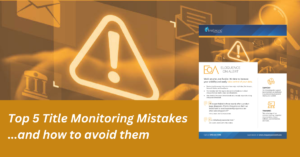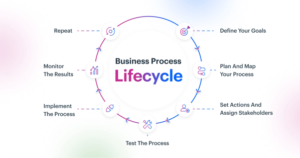The future of sales automation in 2024 will be driven by emerging trends and advancements in technology. In recent years, automation has revolutionized sales processes, and this momentum is expected to continue.
With the integration of artificial intelligence (AI) and machine learning (ML), sales teams will benefit from improved efficiency, enhanced customer experiences, and increased revenue. These technologies will enable automated lead generation, personalized sales pitches, and predictive analytics, enabling sales reps to focus on building meaningful relationships and closing deals.
As AI and ML continue to evolve, businesses that embrace automation will gain a competitive edge in the sales landscape.

Credit: www.gartner.com
1. Rise Of Ai And Machine Learning In Sales
In recent years, we have witnessed the rapid growth of AI and machine learning in various industries, and sales is certainly no exception. By leveraging the power of these technologies, businesses have been able to automate and optimize their sales processes like never before. As we look ahead to the future of automation in sales, it’s clear that AI and machine learning will continue to play a significant role. Let’s explore some of the key trends and predictions for 2024.
1.1 Virtual Sales Assistants
Virtual sales assistants are set to revolutionize the way sales teams operate. These AI-powered assistants have the ability to handle routine tasks and assist sales professionals in various aspects of their workflow. By utilizing natural language processing capabilities, virtual sales assistants can engage with prospects, answer queries, and provide personalized recommendations. With their tireless work ethic and round-the-clock availability, virtual sales assistants ensure that no potential lead goes unnoticed and no customer query is left unanswered.
1.2 Ai-powered Lead Scoring
The process of lead scoring has always been a crucial aspect of sales, allowing businesses to prioritize and focus their efforts on the most promising leads. By incorporating AI and machine learning algorithms, lead scoring becomes even more accurate and efficient. AI-powered lead scoring systems can analyze vast amounts of data, including customer behavior, demographics, and past interactions, to predict the likelihood of conversion. This enables sales teams to identify high-value leads and allocate their resources effectively, ultimately leading to higher conversion rates and better ROI.

Credit: www.forrester.com
2. Automation In Sales Processes
As we look ahead to the future of sales in 2024, one thing is certain—automation will continue to play a vital role in streamlining sales processes. With the advancements in technology, businesses are increasingly adopting automation tools and systems to enhance efficiency, reduce manual tasks, and improve overall productivity.
2.1 Streamlining The Sales Funnel
One of the key areas where automation is making a significant impact is in streamlining the sales funnel. Traditionally, sales teams have had to manually handle leads, prospecting, and qualifying potential clients, which can be a time-consuming and repetitive process. However, with the introduction of automation tools, companies can now automate these tasks, allowing sales reps to focus on building impactful relationships and closing deals.
By automating the sales funnel, businesses can:
- Efficiently capture and track leads, ensuring no potential customer slips through the cracks.
- Automatically segment leads based on their behavior, demographics, or other predetermined criteria, enabling sales teams to personalize their approach.
- Access real-time analytics and insights on the performance of their sales funnel, helping them identify bottlenecks and areas for improvement.
2.2 Automated Sales Follow-ups
Following up with prospects is a critical step in the sales process. However, it can be challenging for sales reps to remember to reach out to all leads and ensure timely and personalized follow-ups. This is where automation comes to the rescue.
With automated sales follow-ups, businesses can:
- Send personalized emails or text messages to prospects at predetermined intervals, keeping them engaged and moving them further down the sales funnel.
- Automatically schedule follow-up tasks for sales reps, ensuring that no lead is left unattended or neglected.
- Integrate with CRM systems to track and measure the effectiveness of follow-up strategies, allowing businesses to optimize their approach.
2.3 Efficient Customer Relationship Management
Effective customer relationship management is crucial for sales success. By automating CRM processes, businesses can ensure that every customer receives the attention and support they need, ultimately leading to increased customer satisfaction and loyalty.
Through efficient customer relationship management automation, businesses can:
- Automatically capture and store customer data, eliminating the need for manual data entry and reducing human error.
- Track customer interactions and engagements, providing sales teams with valuable insights for targeted sales strategies.
- Automate repetitive tasks, such as sending purchase confirmations or requesting product reviews, freeing up time for sales reps to focus on building relationships.
In conclusion, the future of automation in sales processes is promising, with more businesses recognizing the benefits of leveraging automation tools. By streamlining the sales funnel, automating follow-ups, and implementing efficient customer relationship management, companies can enhance productivity, drive revenue growth, and deliver better customer experiences.
3. Personalized Sales Experiences
3. Personalized Sales Experiences
In the constantly evolving world of sales, businesses are realizing the importance of providing personalized experiences to their customers. Gone are the days when generic, one-size-fits-all approaches could capture the attention of potential buyers. In today’s competitive market, customers crave personalization and tailored solutions that meet their specific needs and preferences.
3.1 Ai-driven Sales Recommendations
One of the key elements of personalized sales experiences is the integration of Artificial Intelligence (AI) to provide targeted sales recommendations to customers. AI algorithms analyze vast amounts of data to understand customer behaviors, preferences, and purchase history. By utilizing this valuable information, businesses can offer personalized product recommendations that are highly relevant to each individual customer.
AI-driven sales recommendations go beyond traditional product suggestion algorithms. They take into account a customer’s previous interactions, browsing history, and even social media activity to create a comprehensive profile. This allows businesses to offer tailored recommendations that are more likely to result in a purchase. By leveraging AI technology, companies can enhance their sales process and increase customer satisfaction.
3.2 Predictive Customer Behavior Analysis
Another important aspect of personalized sales experiences is the ability to predict customer behavior. With advanced predictive analytics tools, businesses can analyze vast amounts of customer data to identify patterns and trends. By understanding customers’ purchasing patterns and behaviors, businesses can anticipate their needs and align their sales strategies accordingly.
Predictive customer behavior analysis helps sales teams prioritize leads, identify cross-selling and upselling opportunities, and develop effective marketing campaigns. By harnessing this technology, businesses can optimize their sales process, tailor their messaging, and deliver the right offers to customers at the right time.
Moreover, predictive customer behavior analysis enables sales teams to better understand customer motivations and pain points. This valuable insight allows businesses to deliver personalized solutions and address customer concerns more effectively, ultimately leading to higher conversion rates and increased customer loyalty.
4. Integration Of Chatbots In Sales
In today’s fast-paced business environment, automation is revolutionizing the way companies approach sales. One of the most significant trends shaping the future of sales is the integration of chatbots. Chatbots are intelligent computer programs designed to simulate human conversation, providing quick and efficient customer service and lead qualification. With their ability to engage with customers in real-time and answer queries, chatbots are poised to transform sales processes and enhance customer experience.
4.1 Chatbots For Lead Qualification
Chatbots play a crucial role in lead qualification by streamlining the sales process and ensuring that only the most promising leads are pursued. These virtual assistants can engage in natural language conversations with potential customers, gathering relevant information and qualifying leads based on predefined criteria. By automating lead qualification, companies can save valuable time and resources, allowing sales teams to focus on high-quality leads that are more likely to convert into loyal customers.
4.2 24/7 Customer Support
One of the key advantages of integrating chatbots into sales is their ability to provide round-the-clock customer support. With traditional sales channels, customers often have to wait for business hours to get assistance or resolve their queries. However, chatbots are available 24/7, ensuring that customers can receive instant support whenever they need it. Whether it’s answering frequently asked questions, guiding customers through the buying process, or resolving basic issues, chatbots deliver prompt and personalized service, leaving customers satisfied and loyal to the brand.
5. Sales Team Augmentation
Sales Team Augmentation is a key area where automation is set to revolutionize the sales industry in the near future. With advancements in technology, businesses are increasingly turning to automation to streamline their sales processes, boost efficiency, and improve overall performance.
5.1 Automating Administrative Tasks
Automating administrative tasks is a crucial aspect of sales team augmentation that can free up valuable time and resources. By leveraging automation tools, sales teams can eliminate manual data entry, report generation, and other time-consuming administrative tasks.
Instead of spending hours inputting customer information or updating CRM systems, sales representatives can focus on what they do best – building relationships with prospects and closing deals. Automation also ensures accurate data entry, minimizing the risk of human errors that could potentially impact the sales process.
Automated administrative tasks allow sales teams to be more productive and agile, ultimately leading to increased revenue generation and customer satisfaction. By streamlining workflows and eliminating repetitive tasks, companies can empower their sales teams to concentrate on high-value activities that drive growth.
5.2 Ai-powered Sales Coaching
AI-powered sales coaching is another exciting trend that will shape the future of sales team augmentation. Artificial Intelligence (AI) technology has the potential to transform traditional sales coaching methods and provide real-time guidance to sales reps.
With AI-powered sales coaching tools, sales managers can access data-driven insights and actionable recommendations based on the performance of their sales teams. These tools can analyze sales calls, emails, and customer interactions to identify areas of improvement and provide personalized coaching to each sales representative.
By leveraging AI-powered sales coaching, companies can elevate the performance of their sales teams, enhance sales techniques, and close deals more effectively. This approach empowers sales representatives with the knowledge and skills they need to excel in their roles, leading to improved overall sales performance and increased revenue.
In conclusion, sales team augmentation through automation is set to drive significant transformations in the sales industry. By automating administrative tasks and implementing AI-powered sales coaching, companies can unlock the full potential of their sales teams, increase productivity, and achieve sustainable growth in today’s highly competitive market.

Credit: www.linkedin.com
Frequently Asked Questions For The Future Of Automation In Sales : Trends And Predictions For 2024
What Is The Trend In Automation In 2024?
Automation in 2024 is expected to continue its upward trend, with increased adoption in various industries. It will streamline processes and improve efficiency, leading to cost savings and increased productivity. With advancements in technology, automation will play a pivotal role in enhancing business operations.
What Are The Future Trends In Automation?
Future trends in automation include artificial intelligence integration, increased use of robotics, advanced data analytics, and cloud-based automation solutions. These advancements will enhance efficiency, improve decision-making, optimize resource allocation, and streamline processes across various industries.
What Is New In Marketing Automation?
Marketing automation has evolved with new features, including AI-based personalization, advanced analytics, and multichannel integration. It allows businesses to streamline marketing processes, increase efficiency, and deliver targeted campaigns. With automation, marketers can enhance customer experiences and drive better ROI.
What Could Be Automated In The Future?
In the future, automation may encompass various tasks such as transportation, manufacturing, healthcare, and household chores. This could involve self-driving cars, robots in factories, robots assisting doctors, and smart home devices performing daily activities.
Conclusion
As we look ahead to 2024, it is clear that automation will continue to transform the sales landscape. From AI-powered chatbots to predictive analytics, technology will play a crucial role in streamlining processes and improving customer experiences. Embracing these advancements will not only boost sales efficiency but also drive revenue growth.
To thrive in this increasingly automated world, sales professionals must adapt, embrace new tools, and continuously upskill to stay ahead of the curve. The future of automation in sales is promising, and those who embrace it will be well-equipped to navigate the challenges and seize the opportunities it presents.




